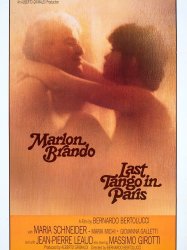Massimo Girotti is a Actor Italien born on 18 may 1918 at Mogliano (Italie)
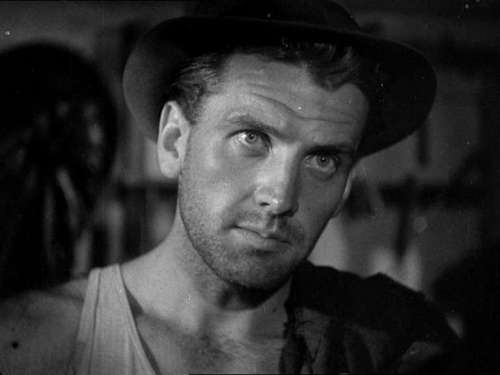
Massimo Girotti (18 May 1918 – 5 January 2003) was an Italian film actor whose career spanned seven decades.
Born in Mogliano, in the province of Macerata, Girotti developed his athletic physique by swimming and polo. While studying engineering, he attracted the attention of Mario Soldati, who offered him a small part in the film Dora Nelson (1939), but it was not until later, in Alessandro Blasetti's La corona di ferro (The Iron Crown) (1941) and Roberto Rossellini's Un Pilota ritorna (A Pilot Returns) (1942), that he began to make an impression as a serious actor. In 1943 came a turning point in his career when Luchino Visconti cast him opposite the torrid Clara Calamai in Ossessione (Obsession), an earlier adaptation of the same novel on which Hollywood's The Postman Always Rings Twice is based. The film marked, in a sense, the birth of Italian neo-realism. Some of his notable post-war films include Caccia tragica (The Tragic Hunt) (1946) by Giuseppe De Santis and In nome della legge (1949) (In the Name of the Law) by Pietro Germi.
In 1950, he starred opposite Lucia Bosé in Michelangelo Antonioni's first full-length feature, Cronaca di un amore (Story of a Love Affair) (1950). In 1953, he played Spartacus in an Italian epic film known in the US as Sins of Rome and then, returned to work again for Visconti, in Senso (1954), giving perhaps the finest performance of his career. In the years which followed, he appeared in a large number of mainly Italian films for directors such as Lizzani, Bolognini, Vittorio Cottafavi, Lattuada, but it was not until 1968 that he once again played a role worthy of his talents - that of the father in Pasolini's Teorema (Theorem) with Terence Stamp and Silvana Mangano. Two years later, Pasolini cast him as Creonte opposite Maria Callas in his Medea (1969). In 1972, he was in Bernardo Bertolucci's Last Tango in Paris.
He continued to act in character roles for the next thirty years. Some of the films he appeared in have been notable, including Joseph Losey's Monsieur Klein (1976) with Alain Delon and Jeanne Moreau, the 1985 television miniseries Quo Vadis?, Roberto Benigni's Il mostro (The Monster) (1994).
He died in Rome of a heart attack after having just completed his last film, Ferzan Özpetek's La Finestra di fronte (Facing Windows) (2003).
En 1941, il doit interpréter, sous la direction de Visconti, le « farouche bandit Gramigna » aux côtés de Luisa Ferida mais le projet n'aboutit pas à cause du ministre de la Culture populaire de Mussolini, Pavolini, qui en avait « assez des histoires de brigands ».
Visconti, « séduit par les yeux clairs et les brusques effarouchements » de Girotti, lui confie en 1942 le rôle du vagabond Gino dans Les Amants diaboliques (Ossessione), adaptation naturaliste du roman de James Cain, Le facteur sonne toujours deux fois, avec Clara Calamai (qui remplace Anna Magnani, initialement prévue). Selon Calamai, « Massimo fut peu à peu transformé; peu à peu nous le vîmes dompté ». Girotti lui-même témoigne : « le dernier jour du tournage, je tombai à terre, évanoui, à bout de tension nerveuse et de fatigue ».
Girotti a plusieurs fois témoigné, parfois de façon anonyme, de la dureté de son mentor, particulièrement au théâtre où il interprète sous la direction de Luchino Visconti le rôle d'Ajax dans une mise en scène monumentale de Troïlus et Cressida de Shakespeare en 1949 (avec Paolo Stoppa, Rina Morelli, Vittorio Gassman et Marcello Mastroianni entre autres), Mademoiselle Julie de Strindberg, en 1957 aux côtés de Lilla Brignone, et Trofimov dans La Cerisaie de Tchekhov en 1965.
Au cours de ses soixante-quatre ans de carrière (l'une des plus longues du cinéma italien), il jouera dans 117 films avec les plus grands metteurs en scène italiens : Alessandro Blasetti, Roberto Rossellini, Vittorio De Sica, Pietro Germi, Giuseppe De Santis, Luigi Zampa, Michelangelo Antonioni, Luigi Comencini, Carlo Lizzani, Alberto Lattuada, Carmine Gallone, Riccardo Freda, Mario Bava, Bernardo Bertolucci, Giuliano Montaldo, Ettore Scola, Liliana Cavani, Roberto Benigni... L'acteur passe ainsi des vétérans du muet à la jeune garde du cinéma italien d'après-guerre, du cinéma d'auteur au cinéma populaire ; il tourne ainsi une dizaine de péplums, interprétant le sculpteur Praxitèle, le musicien Orphée, le poète Ovide ou le général Holopherne.
Parmi les cinéastes étrangers qui l'emploient il y a de nombreux français (Yves Allégret, Jean Grémillon, Claude Autant-Lara, Jean Delannoy, Josée Dayan, Robert Enrico), mais aussi Mikhail Kalatozov, André De Toth, Joseph Losey ou Walerian Borowczyk.
Grand séducteur à l'écran, il a été le partenaire d'Alida Valli, Isa Miranda, Anna Magnani, Lucia Bosé, Silvana Mangano, Patricia Neal, Belinda Lee, Florinda Bolkan, Micheline Presle, Françoise Arnoul.
Ses films les plus célèbres sont, outre Les Amants diaboliques, Chronique d'un amour (1950), Onze heures sonnaient, L'Amour d'une femme, Théorème (1969), Le Dernier Tango à Paris (où il est le rival chanceux de Marlon Brando), M. Klein (1976) ou encore Passion d'amour (1983). Il incarne en outre Spartacus dans la version de 1953 réalisée par Riccardo Freda, Créon/Crésus dans Médée de Pier Paolo Pasolini aux côtés de Maria Callas en 1969, et un Casanova vieillissant dans Cagliostro en 1974.
Dix jours après le tournage de La Fenêtre d'en face, il meurt d'une crise cardiaque le 5 janvier 2003, à l'âge de 84 ans. Il repose dans le cimetière de Campo Verano à Rome.
Source : Wikidata
Massimo Girotti

- Infos
- Photos
- Best films
- Family
- Characters
- Awards
Nationality Italie
Birth 18 may 1918 at Mogliano (Italie)
Death 5 january 2003 (at 84 years) at Rome (Italie)
Birth 18 may 1918 at Mogliano (Italie)
Death 5 january 2003 (at 84 years) at Rome (Italie)
Massimo Girotti (18 May 1918 – 5 January 2003) was an Italian film actor whose career spanned seven decades.
Born in Mogliano, in the province of Macerata, Girotti developed his athletic physique by swimming and polo. While studying engineering, he attracted the attention of Mario Soldati, who offered him a small part in the film Dora Nelson (1939), but it was not until later, in Alessandro Blasetti's La corona di ferro (The Iron Crown) (1941) and Roberto Rossellini's Un Pilota ritorna (A Pilot Returns) (1942), that he began to make an impression as a serious actor. In 1943 came a turning point in his career when Luchino Visconti cast him opposite the torrid Clara Calamai in Ossessione (Obsession), an earlier adaptation of the same novel on which Hollywood's The Postman Always Rings Twice is based. The film marked, in a sense, the birth of Italian neo-realism. Some of his notable post-war films include Caccia tragica (The Tragic Hunt) (1946) by Giuseppe De Santis and In nome della legge (1949) (In the Name of the Law) by Pietro Germi.
In 1950, he starred opposite Lucia Bosé in Michelangelo Antonioni's first full-length feature, Cronaca di un amore (Story of a Love Affair) (1950). In 1953, he played Spartacus in an Italian epic film known in the US as Sins of Rome and then, returned to work again for Visconti, in Senso (1954), giving perhaps the finest performance of his career. In the years which followed, he appeared in a large number of mainly Italian films for directors such as Lizzani, Bolognini, Vittorio Cottafavi, Lattuada, but it was not until 1968 that he once again played a role worthy of his talents - that of the father in Pasolini's Teorema (Theorem) with Terence Stamp and Silvana Mangano. Two years later, Pasolini cast him as Creonte opposite Maria Callas in his Medea (1969). In 1972, he was in Bernardo Bertolucci's Last Tango in Paris.
He continued to act in character roles for the next thirty years. Some of the films he appeared in have been notable, including Joseph Losey's Monsieur Klein (1976) with Alain Delon and Jeanne Moreau, the 1985 television miniseries Quo Vadis?, Roberto Benigni's Il mostro (The Monster) (1994).
He died in Rome of a heart attack after having just completed his last film, Ferzan Özpetek's La Finestra di fronte (Facing Windows) (2003).
Biography
Ancien champion de water polo, Massimo Girotti poursuit des études d'ingénieur chimiste avant de devenir acteur de théâtre et de cinéma. Il est remarqué par le metteur en scène Luchino Visconti lors du tournage de Tosca, commencé par Jean Renoir en 1939 et repris plus tard par Carl Koch.En 1941, il doit interpréter, sous la direction de Visconti, le « farouche bandit Gramigna » aux côtés de Luisa Ferida mais le projet n'aboutit pas à cause du ministre de la Culture populaire de Mussolini, Pavolini, qui en avait « assez des histoires de brigands ».
Visconti, « séduit par les yeux clairs et les brusques effarouchements » de Girotti, lui confie en 1942 le rôle du vagabond Gino dans Les Amants diaboliques (Ossessione), adaptation naturaliste du roman de James Cain, Le facteur sonne toujours deux fois, avec Clara Calamai (qui remplace Anna Magnani, initialement prévue). Selon Calamai, « Massimo fut peu à peu transformé; peu à peu nous le vîmes dompté ». Girotti lui-même témoigne : « le dernier jour du tournage, je tombai à terre, évanoui, à bout de tension nerveuse et de fatigue ».
Girotti a plusieurs fois témoigné, parfois de façon anonyme, de la dureté de son mentor, particulièrement au théâtre où il interprète sous la direction de Luchino Visconti le rôle d'Ajax dans une mise en scène monumentale de Troïlus et Cressida de Shakespeare en 1949 (avec Paolo Stoppa, Rina Morelli, Vittorio Gassman et Marcello Mastroianni entre autres), Mademoiselle Julie de Strindberg, en 1957 aux côtés de Lilla Brignone, et Trofimov dans La Cerisaie de Tchekhov en 1965.
Au cours de ses soixante-quatre ans de carrière (l'une des plus longues du cinéma italien), il jouera dans 117 films avec les plus grands metteurs en scène italiens : Alessandro Blasetti, Roberto Rossellini, Vittorio De Sica, Pietro Germi, Giuseppe De Santis, Luigi Zampa, Michelangelo Antonioni, Luigi Comencini, Carlo Lizzani, Alberto Lattuada, Carmine Gallone, Riccardo Freda, Mario Bava, Bernardo Bertolucci, Giuliano Montaldo, Ettore Scola, Liliana Cavani, Roberto Benigni... L'acteur passe ainsi des vétérans du muet à la jeune garde du cinéma italien d'après-guerre, du cinéma d'auteur au cinéma populaire ; il tourne ainsi une dizaine de péplums, interprétant le sculpteur Praxitèle, le musicien Orphée, le poète Ovide ou le général Holopherne.
Parmi les cinéastes étrangers qui l'emploient il y a de nombreux français (Yves Allégret, Jean Grémillon, Claude Autant-Lara, Jean Delannoy, Josée Dayan, Robert Enrico), mais aussi Mikhail Kalatozov, André De Toth, Joseph Losey ou Walerian Borowczyk.
Grand séducteur à l'écran, il a été le partenaire d'Alida Valli, Isa Miranda, Anna Magnani, Lucia Bosé, Silvana Mangano, Patricia Neal, Belinda Lee, Florinda Bolkan, Micheline Presle, Françoise Arnoul.
Ses films les plus célèbres sont, outre Les Amants diaboliques, Chronique d'un amour (1950), Onze heures sonnaient, L'Amour d'une femme, Théorème (1969), Le Dernier Tango à Paris (où il est le rival chanceux de Marlon Brando), M. Klein (1976) ou encore Passion d'amour (1983). Il incarne en outre Spartacus dans la version de 1953 réalisée par Riccardo Freda, Créon/Crésus dans Médée de Pier Paolo Pasolini aux côtés de Maria Callas en 1969, et un Casanova vieillissant dans Cagliostro en 1974.
Dix jours après le tournage de La Fenêtre d'en face, il meurt d'une crise cardiaque le 5 janvier 2003, à l'âge de 84 ans. Il repose dans le cimetière de Campo Verano à Rome.
Best films
Usually with
Filmography of Massimo Girotti (79 films)
Actor

Facing Windows (2003)
, 1h40Directed by Ferzan Özpetek
Origin Italie
Genres Drama, Romance
Themes Films about sexuality, LGBT-related films, LGBT-related films, LGBT-related film
Actors Giovanna Mezzogiorno, Massimo Girotti, Raoul Bova, Filippo Nigro, Serra Yılmaz, Flavio Insinna
Roles Simone / Davide Veroli
Rating71%





Giovanna (played by Giovanna Mezzogiorno) and her husband Filippo (Filippo Nigro) have settled into life. They both have jobs that make them unhappy. She works as an accountant. He works the graveyard shift because he is too weak to ask his boss for a daytime slot. They argue about money, sex, time and work... There is a subtle sense that this is a marriage whose love is dwindling fast. Perhaps they are only going through the motions for the sake of their kids
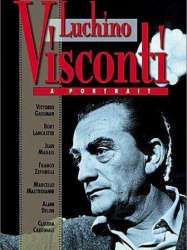
Luchino Visconti (1999)
Directed by Carlo Lizzani
Genres Documentary
Actors Claudia Cardinale, Luchino Visconti, Burt Lancaster, Jean Marais, Giuseppe De Santis, Carlo Lizzani
Roles Self
Rating60%





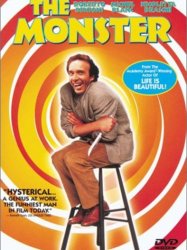
The Monster (1994)
, 1h52Directed by Roberto Benigni
Origin Italie
Genres Comedy
Actors Nicoletta Braschi, Michel Blanc, Roberto Benigni, Jean-Claude Brialy, Dominique Lavanant, Ivano Marescotti
Roles il condomino distinto
Rating72%





Loris (Roberto Benigni) is a part-time mannequin handler for a department store. He hopes to learn Chinese in order to get an assistant manager position. He lives in a building where he hasn't paid the rent in months, and he also owes money to other people around town.

The French Revolution (1989)
, 5h24Directed by Robert Enrico, Richard T. Heffron, Frédéric Auburtin
Origin France
Genres Drama, War, Thriller, Historical
Themes Politique, Political films, Histoire de France, French Revolution films, Films about royalty
Actors Klaus Maria Brandauer, Andrzej Seweryn, François Cluzet, Jean-François Balmer, Jane Seymour, Peter Ustinov
Roles Envoyé du Pape
Rating75%





Les événements relatés dans les deux parties de La Révolution française sont nombreux. Les producteurs ont voulu relever le défi inédit de couvrir l’ensemble de la période révolutionnaire et donc tous ses principaux événements (ce qui en fait d'ailleurs un film pédagogique malgré son parti pris clairement dantoniste). L'œuvre passe cependant très vite sur la guerre de Vendée, qui n’est mentionnée que quatre fois, notamment par Robespierre et Desmoulins, qui dénonce le massacre d’ « un peuple entier ». Le film se termine sur l’exécution de Robespierre et Saint-Just en 1794 et omet d'évoquer la suite des événements. Toutefois, la Révolution française s'étend jusqu'en 1799, année du coup d'État de Napoléon Bonaparte.
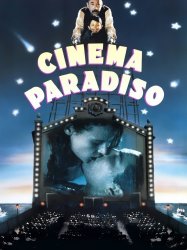
Cinema Paradiso (1988)
, 1h58Directed by Giuseppe Tornatore
Origin Italie
Genres Drama, Romance
Themes L'adolescence, Films about films, Films about children, Medical-themed films, Seafaring films, Transport films, Films about disabilities, La cécité
Actors Philippe Noiret, Salvatore Cascio, Marco Leonardi, Jacques Perrin, Brigitte Fossey, Antonella Attili
Roles Il pretore Guido Schiavi (archive footage) (uncredited)
Rating84%





In Rome, in the 1980s, famous Italian film director Salvatore Di Vita returns home late one evening, where his girlfriend sleepily tells him that his mother called to say someone named Alfredo has died. Salvatore obviously shies from committed relationships and has not been to his home village of Giancaldo, Sicily in 30 years. As his girlfriend asks him who Alfredo is, Salvatore flashes back to his childhood.

La Bohème (1988)
, 1h46Directed by Luigi Comencini, Frédéric Auburtin
Origin United-kingdom
Genres Drama, Musical
Themes Films about music and musicians, Musical films, Films based on operas
Actors Mario Maranzana, Massimo Girotti, Ciccio Ingrassia
Roles Alcindoro
Rating70%





A Paris, dans le Quartier latin, au début du XXe siècle. Trois amis, Rodolphe le poète, Marcel le peintre et Colline le philosophe, vivent ensemble misérablement dans une chambre de bonne. Mimi, une jeune voisine, se joint à eux. Rodolphe tombe amoureux d'elle. Bientôt, la jeune fille, malade, se plaint de la jalousie de Rodolphe. Celui-ci avoue à ses amis qu'il veut quitter Mimi car il ne peut la soigner. Ils se séparent mais Mimi revient bientôt mourir dans leur petite chambre. C'est l'adaptation de l'opéra La Bohème de Giacomo Puccini, lui-même adapté d'un roman d'Henri Murger.
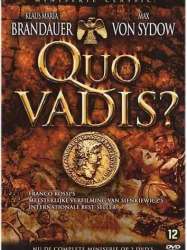
Quo Vadis? (miniseries) (1985)
Directed by Franco Rossi
Genres Drama, Historical
Actors Klaus Maria Brandauer, Max von Sydow, Frederic Forrest, Cristina Raines, Francesco Quinn, Gabriele Ferzetti
Roles Aulus Plautius
Rating64%






The Berlin Affair (1985)
, 2h1Directed by Liliana Cavani
Origin Italie
Genres Drama
Themes Films about sexuality, Bisexuality-related films, LGBT-related films, Political films, LGBT-related films, LGBT-related film, Lesbian-related films
Actors Kevin McNally, Gudrun Landgrebe, Massimo Girotti, Mio Takaki, Mio Takaki, Hanns Zischler
Roles Werner von Heiden
Rating54%





Berlin 1938: Louise von Hollendorf is married to Heinz, a German senior diplomat at the Ministry of Foreign Affairs. She decides to take drawing lessons at the institute of Fine Arts. At the institute, Louise meets Mitsuko Matsugae, a young and alluring daughter of the Japanese Ambassador. Captivated by Mitsuko's beauty, Louise asks her to model for her sketching practice. Rumor spreads at the institute that the two women are romantically engaged. Rather than driving them apart the rumors bring the two friends closer together and soon they have a passionate affair. As Louise later confides to her former literature professor, "One moment we were laughing, the next, we were making love". They have their romantic encounters first at Louise's house and later at a seedy hotel. After spending more and more time together Louise falls in love with Mitsuko.

The Art of Love (1983)
, 1h40Directed by Walerian Borowczyk
Origin France
Genres Drama, Erotic, Fantasy
Themes Films about sexuality, Erotic films
Actors Marina Pierro, Laura Betti, Michele Placido, Luis Bacalov, Massimo Girotti, Milena Vukotic
Roles Ovid
Rating44%





Dans l'Antiquité, en l'an XIII du premier siècle de notre ère dans la mythique cité de Rome, plusieurs jeunes hommes décident de suivre l'enseignement du poête Ovide, afin d'apprendre l'art de séduire les femmes. Claudia, très belle femme brune, dont l'époux Marcarius est parti à la guerre, éprouve de la solitude. Cornelius, l'un des jeunes élèves d'Ovide, entreprend de tester sur elle ses connaissances. Mais la fourbe mère de Marcarius, aidée d'un perroquet espion, veille farouchement sur sa belle-fille. Cornélius finit cependant par conquérir Claudia. Marcarius découvre cet adultère et décide d'exercer sa vengeance sur Ovide.

Passion of Love (1981)
, 1h57Directed by Ettore Scola
Origin Italie
Genres Drama
Actors Bernard Giraudeau, Laura Antonelli, Valeria D'Obici, Massimo Girotti, Jean-Louis Trintignant, Bernard Blier
Roles Colonel
Rating71%





Giorgio (Bernard Giraudeau), un militaire de carrière, décide de coucher sur le papier les souvenirs d'une période particulièrement douloureuse de sa vie, cinq années plus tôt, caractérisée par l'amour de deux femmes que tout oppose: Clara et Fosca.

The Innocent (1976)
, 2h8Directed by Luchino Visconti
Origin France
Genres Drama, Historical, Romance
Actors Giancarlo Giannini, Laura Antonelli, Jennifer O'Neill, Rina Morelli, Massimo Girotti, Marc Porel
Roles Count Stefano Egano
Rating73%





The story is set in the late nineteenth century. Tullio Hermil (Giancarlo Giannini), a wealthy Roman aristocrat married to Giuliana (Laura Antonelli) lives his sexual life with a possessive aristocratic mistress (Jennifer O'Neill), Teresa. However, his interest in his wife Guliana is rekindled when he sees Guliana's happiness after she has begun a love affair with a novelist, Filippo d'Aborio. She becomes pregnant by him. Tullio urges an abortion. She refuses. d'Arborio dies of a tropical infection. Tullio cannot tolerate the healthy male child delivered to Giuliana, although he tries. While the family are at Christmas mass he exposes the baby and it dies, apparently of natural causes. Giuliana, who knows Tullio has murdered the baby, leaves him. Tullio attempts to rekindle his affair with Teresa and takes her to his town house. There they attempt to make love. When she tells him she no longer loves him he shoots himself in the heart and dies. Teresa picks up her belongings and leaves.
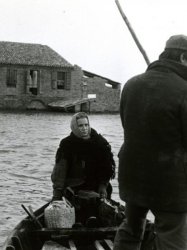
And Agnes Chose to Die (1976)
, 2h15Directed by Giuliano Montaldo
Origin Italie
Genres Drama, War
Themes Political films
Actors Ingrid Thulin, Stefano Satta Flores, Michele Placido, Aurore Clément, Ninetto Davoli, William Berger
Roles Palita
Rating9%





Seconde Guerre mondiale. Agnese, lavandière originaire de Comacchio (province de Ferrare), est l'épouse d'un résistant. Or, son mari vient d'être arrêté et déporté en camp de concentration où il finit par y mourir. Par fidélité à son idéal, Agnese soutient alors le maquis résistant de plusieurs manières : nourriture, informations, transfert de munitions. Son action demeure discrète. Un jour cependant elle est contrainte de rejoindre les partisans. Par mesure de rétorsion, elle vient, en effet, d'assommer à coup de mitraillette un soldat allemand qui, par pur plaisir, s'est mis à fusiller son chat noir. Débute la légende de "Mamma Agnese".
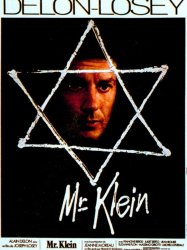
Mr. Klein (1976)
, 2h3Directed by Joseph Losey
Origin France
Genres Drama, War, Thriller, Historical, Crime
Themes Films about religion, L'usurpation d'identité, Political films, Films about Jews and Judaism, Escroquerie, Histoire de France, L'Occupation allemande en France, La condition juive en France sous l'Occupation allemande
Actors Alain Delon, Michael Lonsdale, Jeanne Moreau, Juliet Berto, Francine Bergé, Jean Bouise
Roles Charles
Rating74%





Paris, January 1942. France is occupied by the Nazis. Robert Klein, apparently apolitical, is a well-to-do art dealer, Roman Catholic and Alsatian by birth, who takes advantage of French Jews who need to sell artworks to raise cash to leave the country. One day, the local Jewish newspaper, addressed to him, is delivered to his home. He learns that another Robert Klein who has been living in Paris, a Jew sought by the police, has had his mail forwarded to him in an apparent attempt to destroy his social reputation and make him a target of official anti-Semitism. He reports this to the police who remain suspicious that he may be reporting this scheme to disguise his own true identity. His own investigations lead him in contradictory directions, to Klein who lives in a slum while having an affair with his concierge and to Klein who visits a palatial country estate where he has seduced an apparently Jewish married woman. When the art dealer cannot locate the other Klein, authorities require him to offer proof of his French heritage. While waiting for the documentation to arrive, he struggles to track down his namesake and learn his motivation. Before he can resolve the situation by either means, he is caught up in the July 1942 roundup of Parisian Jews. He is reunited with Jews who once were his clients as they board boxcars for Germany.

Mark Shoots First (1975)
Genres Action, Crime
Actors Franco Gasparri, Lee J. Cobb, Massimo Girotti, Ely Galleani, Andrea Aureli, Spiros Focás
Roles Il Questore Spaini
Rating61%





Marc Terzi se rend à Gênes pour prendre en charge l'affaire d'un tueur en série qui se fait appeler "Le Sphinx".

Cagliostro (1975)
Genres Thriller, Biography
Actors Rosanna Schiaffino, Bekim Fehmiu, Curd Jürgens, Ida Galli, Luigi Pistilli, Robert Alda
Roles Giacomo Casanova
Rating66%





Arrivé à Paris pour se gagner les faveurs de Louis XVI et Marie-Antoinette, Cagliostro est traité en paria par la cour versaillaise et disgracié quand il a la fâcheuse idée de prédire à la Reine sa mort sur l’échafaud.
 Connection
Connection
